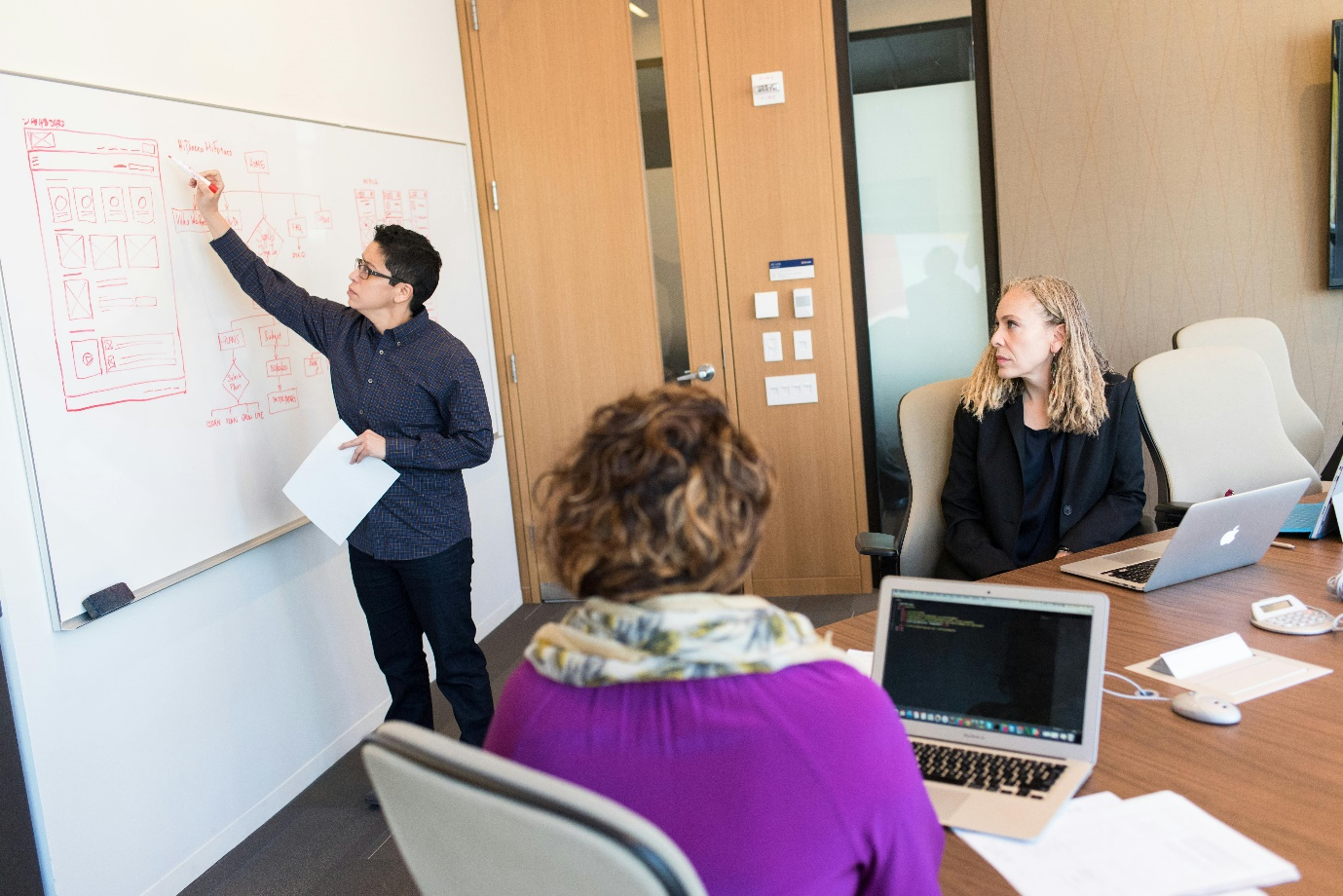
What Does a Technical Program Manager Do?
A Technical Program Manager plays an important role to reduce the gap between technical challenges and business solutions.
They work at the intersection of engineering teams, product team, & business managers. They take the responsibility of how large technical projects can be planned, executed, and delivered efficiently.

They are responsible for the planning, execution, and delivery of the technical projects, so that they can ensure alignment with the organization’s goals. Main responsibilities of a Technical Program Manager are:
- Project Planning: Analysing and defining project scopes, timelines & resources.
- Cross-Functional Coordination: Collaboration with engineers, product team, and design teams.
- Risk Management: Identifying potential issues. Developing strategies for mitigating those issues. Handling associated risks.
- Stakeholder Communication: Keeping all Stakeholders informed about project status and any changes to be made and their potential consequences & outcomes.
- Technical Oversight: Understanding technical aspects to make decisions.
It’s the TPMs who ensure that the technical projects are delivered on time. Delivered within the scope that meets quality standards.
Read an interview on the roles of a Technical Program Manager.
Essential Skills for Technical Program Managers
So, what are some core skills a technical project manager needs?

Technical Skills
This can vary depending on the project types. Nonetheless we can generalize which includes:
- Software Development Lifecycle (SDLC): Having a deep understanding of software development stages from ideation, requirements to deployment and ensuring smooth user experience.
- System Design: System design is a crucial part. So a TPM needs to have the ability to conceptualize and implement complex systems.
- Agile Methodologies: Familiarity & strong experience with Kanban, Scrum and iterative development process.
- Data Analysis: Using proper metrics to inform decisions and thus measure success.
Unlike core engineers, TPMs require immense soft skill. Actually to succeed as a TPM, you need a combination of technical skill as well as soft skill:
Soft Skills
- Communication
- Leadership Quality
- Problem-Solving
- Time Management
Related: 11 Project Management Skills Every Project Manager Should Have
Top Technical Program Manager Interview Questions

Now let’s explore the most common interview questions for a Technical Program Manager Interview. A tight preparation will boost your confidence and performance in the actual interview.
Here I am sharing some questions that are frequently asked:
1. Can you describe a complex technical project you managed? What challenges did you face? Which part was the most challenging for you? How did you overcome them?
Pro Tip: Recruiters assess your capability by asking what level of complexity is challenging.
2. How do you prioritize tasks when managing multiple projects and all are close to deadlines?
Pro Tip: This shows how you manage time and priorities under pressure.
3. Explain a technical concept to a non-technical stakeholder.
Pro Tip: This measures your ability to simplify complex ideas, and this signals your communication strength.
4. How do you handle conflicts within cross-functional teams?
Pro Tip: Conflict resolution suggests your leadership virtue and emotional intelligence.
5. What strategies do you use for risk management in projects?
Pro Tip: Interviewers want to know how proactive & structured your planning is.
6. Can you discuss your experience with Agile methodologies?
Pro Tip: They’re probably looking for more than buzzwords, focus on your experience drawn from real implementation.
7. How do you ensure effective communication among distributed teams?
Pro Tip: A Similar question tests how well you can manage distributed teams and keep everyone organized and focused.
8. Describe a situation where a project was not as planned. What did you learn? What happened eventually?
Pro Tip: Don’t hide failure. Trust me – explaining a failure won’t create any negative impact, rather lying may do. Interviewer just wants to know how you handle a real scenario. Use it to highlight your capability to learn and adapt.
9. How do you measure the success of a technical program?
Pro Tip: Success metrics shows how much results-driven you are.
10. What tools do you use for project tracking and management?
Pro Tip: Simply name tools you use and explain how they helped you to produce more value.
11. Tell me about a time when you had to manage changing project requirements amid a running project. How did you respond? What was the consequence?
Pro Tip: This question checks how you control a project without losing direction and getting into issue.
12. Have you ever led a program where multiple stakeholders had conflicting in interests? How did you manage?
Pro Tip: Your answer should reflect how well you can influence without authority. Remember- influencing in authority can be easy. But influencing without authority? Prove it.
13. Describe a time you had to dive deep into technical details to unblock your team. What was the issue and how did you contribute?
Pro Tip: Interviewers want to see that you’re not afraid to get technical when needed.
14. What’s an example of a technical debt issue you’ve identified and addressed proactively?
Pro Tip: Shows how you think long-term about system health, not just short-term but quality compromised delivery.
15. How do you balance speed vs. quality in a fast-moving project? Share a time you had to make that trade-off.
Pro Tip: A similar question may arise. Your recruiter wants to see if you can make smart decisions under pressure without compromising quality.
16. Can you tell about a program where data was central to decision-making. How did you ensure visibility and transparency?
Pro Tip: Data-driven thinking is a big plus. It show how you make calls based on facts, not guesswork.
17. Have you led a post-mortem after a project wrap-up? What did you do with the findings?
Pro Tip: This question is asked to see your approach to continuous improvement.
18. Describe your role in coordinating with engineering, product, and design teams . How did you keep everyone aligned?
Pro Tip: This question judges your team collaboration.
19. How do you support and guide junior team members in your projects?
Pro Tip: This highlights your leadership style, patience, and how you invest in building strong, capable teams.
20. What’s your approach to onboarding new team members into an ongoing program?
Pro Tip: Onboarding is part of scaling, this shows how well you set up others for success.
Practicing these and similar question-answers will help you convincingly demonstrate your experiences as a TPM.
Related: 70+ Technical program manager Interview questions
Insightful Questions to Ask Interviewers
Asking thoughtful questions during an interview shows not only your interest but also your prudence.
Consider asking:
- What are the biggest challenges the team is currently facing?
- How does the company define success for this role?
- Can you describe the team culture and working style?
- What opportunities are there for self development?
- How does this role contribute to the company’s long-term goals?

Related: Levels FYI: TPM onsite prep advice
Tips to Prepare for a Technical Program Manager Interview
Effective preparation is key to a successful interview. Follow these tips:
- Research the Company: Understand its products, services, and goals.
- Review the Job Description: Align your experience with the required qualifications.
- Practice Behavioural Questions: Use the STAR method (Situation, Task, Action, Result) to structure responses.
- Hone Technical Knowledge: Be prepared to discuss technical concepts related to the role.
- Mock Interviews: Practice with mentors to gain feedback. Try an AI mentor like Synco AI

When you understand the role, sharpen your skills, and practice these questions with intention, you don’t just show up - you stand out. Go in with confidence. You are not just ready for the interview, you are ready to lead.



